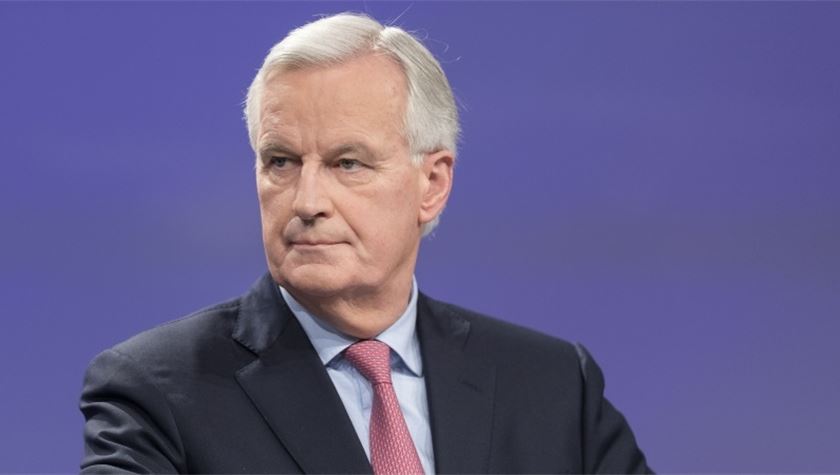Michel Barnier’s nomination as France’s Prime Minister has brought some relief to President Emmanuel Macron after weeks of political uncertainty.
However, this respite might be short-lived as Barnier’s fate now hinges on Marine Le Pen, leader of the far-right Rassemblement National (RN).
Le Pen, a long-time rival of Macron, has emerged as a kingmaker in the new political landscape, holding the power to either support Barnier’s government or join forces with the left to topple it.
The snap legislative election earlier this year delivered a hung parliament, weakening Macron’s centrist party and giving Le Pen’s RN a strong negotiating position.
Although Macron dissolved parliament in June to thwart the rise of the far right, the move backfired, positioning Le Pen as a critical figure in the assembly.
Now, her decision on whether to support or oppose Barnier could determine the stability of France’s government.
Finding common ground with Le Pen
Le Pen has made it clear that her decision will depend on Barnier’s address to parliament.
“It’s going to be extremely difficult, not because of Barnier himself, but due to parliamentary arithmetic,” said Florence Portelli, a centre-right mayor who has known Barnier for years, in a Financial Times report.
If Le Pen and her party decide to back a censure motion, it could spell disaster for Macron, who has spent weeks searching for a premier capable of surviving in a divided parliament.
Le Pen’s stance is critical not only for Barnier’s immediate survival but also for the long-term functioning of his government.
The RN holds more seats in parliament than Macron’s centrist camp, and their backing will be essential for passing the 2025 budget and any legislative priorities that follow.
Barnier faces the difficult task of finding common ground with Le Pen, despite his history of opposing the far right throughout his political career.
In an interview with the FT, Barnier expressed scepticism about Le Pen, stating, “I think she has never dropped a deep-seated desire to take France out of the EU, even if she has toned down her Euroscepticism in recent election campaigns.”
Despite these differences, Barnier may have no choice but to engage with Le Pen and her party if he hopes to navigate the complexities of the new parliament.
The left-wing New Popular Front, which won the most seats but fell short of a majority, has already pledged to oppose Barnier.
This leaves Barnier dependent on the tacit support of the far right to avoid being ousted from office.
The far-right’s conditions for support
The National Rally has made its conditions for support clear in recent days.
Le Pen’s party is pushing for measures on purchasing power, security, immigration, and electoral reform to introduce more proportional representation in parliamentary elections.
Centrist senator and Macron ally Hervé Marseille said in an interview with Le Monde, “Marine Le Pen gives the kiss of death to this figure and then that one. The National Rally has 142 lawmakers; you can’t ignore them.”
The question remains whether Barnier, who must also satisfy his centre-right and centrist backers, can meet the far right’s demands without compromising his own political principles.
One of Barnier’s immediate challenges will be addressing France’s economic and financial situation, which is expected to involve difficult budget cuts.
However, the far right opposes many of the austerity measures that may be necessary to address France’s dire debt issues.
“Barnier appears at least to meet one of the criteria we’d demanded, which was to have someone who would respect different political forces and be able to speak with the National Rally,” Le Pen said.
“That will be useful, as compromises will be needed to solve the budget situation.”
What do experts say?
Despite the potential for conflict, some analysts believe that the RN may choose to bide its time rather than immediately topple Barnier’s government.
OpinionWay pollster Bruno Jeanbart observed in Politico, “They have the fate of the government in their hands, but I’m not sure it’s in their interest to topple the government too quickly.”
Le Pen may see value in allowing Barnier to govern for the time being, knowing that a political crisis could work to her advantage in the next presidential election.
“They could let things happen until the next presidential election,” Jeanbart added, suggesting that the RN understands the challenges of governing without winning the presidency.
Paul Taylor, a senior visiting fellow at the European Policy Centre, observed in The Guardian,
Macron may have saved his pension reform by appointing Barnier, but he has put his political survival in the hands of Le Pen, who can show statesmanship by abstaining to let a tough budget pass, then pull the plug on the government when conditions are most favourable for her presidential bid.
The survival of Barnier’s government is far from guaranteed, and the coming weeks will be critical in determining whether he can navigate the treacherous waters of French politics.
As Barnier prepares to pick his cabinet and outline his plans in parliament, all eyes will be on Le Pen and her party.
Their decision will not only determine the immediate fate of Barnier’s government but also shape the trajectory of France’s political landscape in the years to come.
For Macron, the stakes are high. After seven weeks of searching for a premier who can survive in a divided parliament, the prospect of France becoming “ungovernable” looms large.
If Barnier fails to secure the support of the far right, the country could face yet another political crisis, with unpredictable consequences for its future.
The post How Michel Barnier’s fate as French PM rests on Marine Le Pen’s discretion appeared first on Invezz

